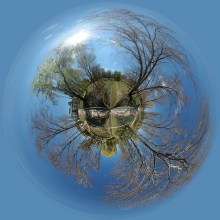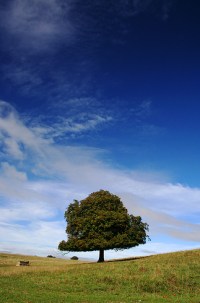
Introduction to the Issue of Sustainability
From sustainable development to a sustainable way of life
In 1987 the WCED (World Commission on Environment and Development) under the presidency of the Norwegian Prime Minister, Gro Harlem Bruntland, in the document "Our Common Future" outlines for the first time the concept of “sustainable development”, defined as “the development which allows the current generation to satisfy its own needs without compromising the ability of future generations to satisfy their own”. The objective is clearly that enabling economic development and environmental conservation to co-exist.
Many and various definitions have subsequently been proposed, while the notion of sustainable development has been called into question by many who consider it ambiguous. Giving a priori legitimacy to a concept of development which brings together economic growth and environmental conservation takes no account of the gross contradiction between the indefinite character of growth and the limited nature of the planet. Some believe that it is best to avoid the term sustainable development, and to refer to sustainability as a composite of various aspects (environmental, social, economic, and so on).

Many views, more or less radical, have been expressed. A strong position considers the totality of the resources and services provided by the environment (natural capital) a unique and irreplaceable wealth, the loss of which represents damage that is irreversible and cannot be compensated. A weak position argues that it is possible to replace the natural capital, at least in part, with an artificially created capital. Between these two extremes exist many different views.
Sustainability is in any case a broad concept, by no means limited to the economic-productive sphere and its impact on the environment, applicable to all of human experience as indicative of a way of life.
A sustainable way of life involves both the decision to reduce polluting emissions and the universal recognition of the rights of men and women, both the battle against wasting resources and that against injustice, stopping the destruction of ecosystems and that caused by wars, carrying out specialist research and reflecting on the way in which research is conducted.
Sustainability must be concerned with the relationships between human beings just as it must be concerned with the conservation of the environment.
The issue goes well beyond that of a limited perspective such as “economy vs. environment” to become a necessary part of the history of human consciousness.
Credits |
Copyright (c) IRIS 2007 - Thanks to Regione Piemonte - Ass. Ambiente |

 |
| 
